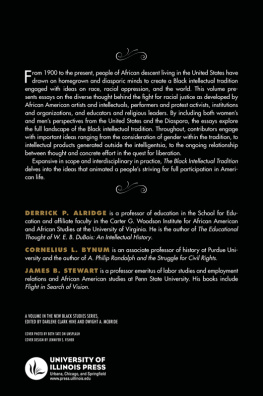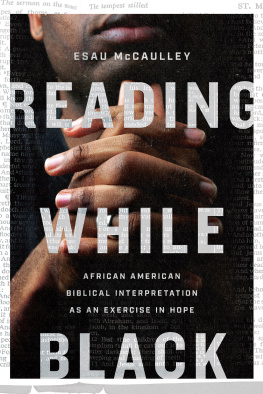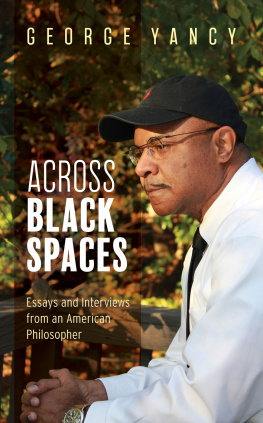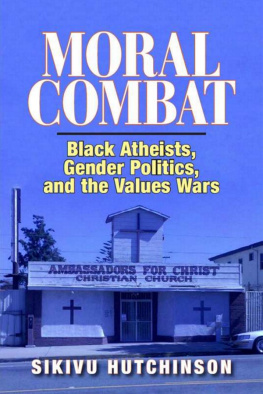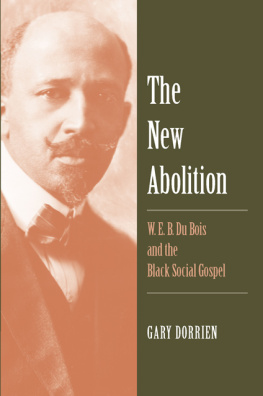Derrick P. Alridge - The Black Intellectual Tradition: African American Thought in the Twentieth Century
Here you can read online Derrick P. Alridge - The Black Intellectual Tradition: African American Thought in the Twentieth Century full text of the book (entire story) in english for free. Download pdf and epub, get meaning, cover and reviews about this ebook. year: 2021, publisher: University of Illinois Press, genre: Politics. Description of the work, (preface) as well as reviews are available. Best literature library LitArk.com created for fans of good reading and offers a wide selection of genres:
Romance novel
Science fiction
Adventure
Detective
Science
History
Home and family
Prose
Art
Politics
Computer
Non-fiction
Religion
Business
Children
Humor
Choose a favorite category and find really read worthwhile books. Enjoy immersion in the world of imagination, feel the emotions of the characters or learn something new for yourself, make an fascinating discovery.
- Book:The Black Intellectual Tradition: African American Thought in the Twentieth Century
- Author:
- Publisher:University of Illinois Press
- Genre:
- Year:2021
- Rating:5 / 5
- Favourites:Add to favourites
- Your mark:
The Black Intellectual Tradition: African American Thought in the Twentieth Century: summary, description and annotation
We offer to read an annotation, description, summary or preface (depends on what the author of the book "The Black Intellectual Tradition: African American Thought in the Twentieth Century" wrote himself). If you haven't found the necessary information about the book — write in the comments, we will try to find it.
From 1900 to the present, people of African descent living in the United States have drawn on homegrown and diasporic minds to create a Black intellectual tradition engaged with ideas on race, racial oppression, and the world. This volume presents essays on the diverse thought behind the fight for racial justice as developed by African American artists and intellectuals; performers and protest activists; institutions and organizations; and educators and religious leaders. By including both womens and mens perspectives from the U.S. and the Diaspora, the essays explore the full landscape of the Black intellectual tradition. Throughout, contributors engage with important ideas ranging from the consideration of gender within the tradition, to intellectual products generated outside the intelligentsia, to the ongoing relationship between thought and concrete effort in the quest for liberation.
Expansive in scope and interdisciplinary in practice, The Black Intellectual Tradition delves into the ideas that animated a peoples striving for full participation in American life.
Contributors: Derrick P. Alridge, Keisha N. Blain, Cornelius L. Bynum, Jeffrey Lamar Coleman, Pero Gaglo Dagbovie, Stephanie Y. Evans, Aaron David Gresson III, Claudrena N. Harold, Leonard Harris, Maurice J. Hobson, La TaSha B. Levy, Layli Maparyan, Zebulon V. Miletsky, R. Baxter Miller, Edward Onaci, Venetria K. Patton, James B. Stewart, and Nikki M. Taylor
|CoverTitle PageContentsIntroductionPart I: Scholarship and Education1. African American Intellectual History: The Past as a Porthole into the Present and Future of the Field2. Afrocentricity and Autobiography: Historiographical Interventions into Black Intellectual TraditionsPart II: Arts and Letters3. Singing Is Swinging: The Soul Force of Twentieth-Century Black Protest Music4. The PostCivil Rights Era and the Rise of Contemporary Novels of Slavery5. Letters to Our Daughters: Black Womens Memoirs as Epistles of Human Rights, Healing, and Inner PeacePart III: Social Activism and Institutions6. Into the Kpanguima: Questing for the Roots of Womanism in West African Womens Social and Spiritual Formations7. New Negro Messengers in Dixie: James Ivy, Thomas Dabney, and Black Cultural Criticism in the Postwar US South, 1919-19308. Tackling the Talented Tenth: Black Greek-Lettered Organizations and the Black New SouthPart IV: Identity and Ideology9. A New Afrikan Nation in the Western Hemisphere: Black Power, the Republic of New Afrika, and the Pursuit of Independence10. A Certain Bond between the Colored Peoples: Internationalism and the Black Intellectual Tradition11. Black Conservative Dissent12. Postracialism and Its Discontents: Barack Obama and The New American DilemmaContributorsIndexBack cover|Derrick P. Alridge is a professor of education in the School for Education and affiliate faculty in the Carter G. Woodson Institute for African American and African Studies at the University of Virginia. He is the author of The Educational Thought of W. E. B. DuBois: An Intellectual History. Cornelius Bynum is an associate professor of history at Purdue University and the author of A. Philip Randolph and the Struggle for Civil Rights. James B. Stewart is a professor emeritus of professor of labor studies and employment relations and African American Studies at Penn State University. His books include Flight in Search of Vision.
Derrick P. Alridge: author's other books
Who wrote The Black Intellectual Tradition: African American Thought in the Twentieth Century? Find out the surname, the name of the author of the book and a list of all author's works by series.

